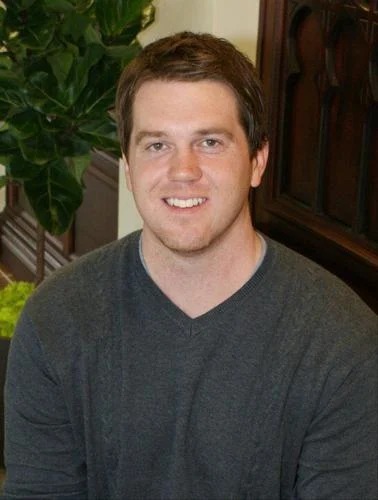After nearly 14 years on death row, Steven Lawayne Nelson, the convicted murderer of Rev. Clint Dobson, was executed by lethal injection at the Texas State Penitentiary in Huntsville. His case, marked by brutality, a devastated community, and years of legal battles, culminated in his execution on Wednesday evening. Nelson, who was 37 at the time of his death, maintained a calm demeanor in his final moments, telling his wife he loved her before addressing the warden with the chilling words, “I’m not scared. I’m at peace. Let’s ride, Warden.” He was pronounced dead 24 minutes after the injection was administered.
The Crime That Shook NorthPointe Baptist Church
The events that led to Nelson’s execution began on March 3, 2011, when he entered NorthPointe Baptist Church in Arlington, Texas, and attacked 28-year-old Rev. Clint Dobson and the church secretary, Judy Elliott. The robbery turned into a gruesome scene of violence as Nelson suffocated and beat Dobson to death. Elliott was brutally assaulted, left unconscious but alive.
Investigators found that Nelson had stolen several items, including the church’s laptop and credit cards, which he used for personal purchases in the hours following the attack. His reckless use of the stolen items played a significant role in his swift arrest.
The Investigation and Arrest
Nelson was arrested two days later, on March 5, 2011, after security footage and transaction records linked him to the crime. Authorities discovered he had pawned the church’s stolen laptop and used the pastor’s credit card at multiple stores, leaving a clear trail for detectives to follow.
Judy Elliott, despite suffering severe injuries, later testified against Nelson, describing the terrifying ordeal and confirming his presence at the scene.
Trial and Conviction
In October 2012, Nelson’s trial for capital murder began. Prosecutors painted a picture of a remorseless killer who not only murdered Dobson but brutally attacked Elliott in an attempt to eliminate witnesses. The defense attempted to argue that Nelson had a troubled past and lacked intent to kill, but the jury was unconvinced.
After deliberating for less than two hours, the jury found Nelson guilty of capital murder. Given the heinous nature of the crime, the prosecution sought the death penalty, which was ultimately handed down by the judge.
During the trial, prosecutors also presented evidence linking Nelson to another homicide—the killing of Jonathan Holden, a fellow inmate, while he was awaiting trial in the Tarrant County Jail. Though Nelson was never officially tried for this murder, the case was considered as evidence of his violent nature.
Years on Death Row: Appeals and Legal Challenges
Following his conviction, Nelson spent over a decade on death row, filing multiple appeals that were ultimately denied. His legal team argued that his constitutional rights were violated, that the death penalty was excessive, and that he had received ineffective legal representation during his trial.
However, the Texas Court of Criminal Appeals repeatedly upheld his sentence, stating that the evidence against him was overwhelming and that his violent behavior both inside and outside of prison only reinforced the appropriateness of the death penalty.
Final Moments Before Execution
At 6:15 PM on February 5, 2025, Nelson was led into the execution chamber at the Huntsville Unit, the site of Texas’ executions. Witnesses included family members of Rev. Dobson, Judy Elliott, and Nelson’s wife, whom he had married while on death row.
Nelson declined a final meal and chose instead to spend his last hours writing letters to his loved ones.
When asked for his final statement, he looked towards his wife and said:
“I love you. Stay strong. Enjoy life.”
Then, turning to the warden, he spoke his final words:
“I’m not scared. I’m at peace. Let’s ride, Warden.”
At 6:28 PM, the lethal injection was administered. For several minutes, Nelson’s breathing slowed until he became unresponsive. He was pronounced dead at 6:52 PM.
Reactions from the Victim’s Family and Community
Outside the prison, Rev. Dobson’s family released a statement, saying:
“Tonight, justice has been served. Clint was a loving, kind-hearted man who dedicated his life to serving God and his community. His life was stolen in a senseless act of violence, and while nothing can bring him back, we find closure in knowing that his murderer has faced the consequences of his actions.”
Judy Elliott, who survived the attack and was present at the execution, spoke briefly to reporters:
“I have waited 14 years for this moment. It doesn’t bring me joy, but it brings me peace. He showed no mercy to us that day, and I believe justice has now been carried out.”
Debate Over the Death Penalty Continues
As with every execution, Nelson’s case sparked debates over capital punishment. Advocacy groups, including the Texas Coalition to Abolish the Death Penalty, condemned the execution, arguing that the system is flawed and disproportionately applied.
Others, including Texas Attorney General Ken Paxton, defended the decision, stating:
“The death penalty exists for the most heinous crimes. Steven Nelson took the life of a young pastor in cold blood, showing no remorse. Justice has been served tonight.”
The Legacy of Rev. Clint Dobson
Despite the tragedy, Rev. Dobson’s legacy lives on. NorthPointe Baptist Church continues to honor his memory, having established “The Clint Dobson Memorial Fund” to support young pastors and community outreach programs. His family, friends, and congregation continue to remember him as a kind-hearted and compassionate leader whose life was cut short but whose impact endures.
Conclusion
The execution of Steven Lawayne Nelson marks the final chapter in a case that left a church, a family, and a community in mourning. As Texas remains one of the leading states in carrying out the death penalty, Nelson’s execution underscores the ongoing legal, ethical, and emotional debates surrounding capital punishment in America.


Leave a Reply